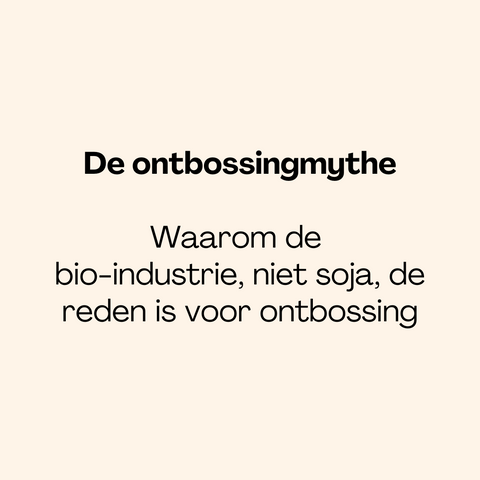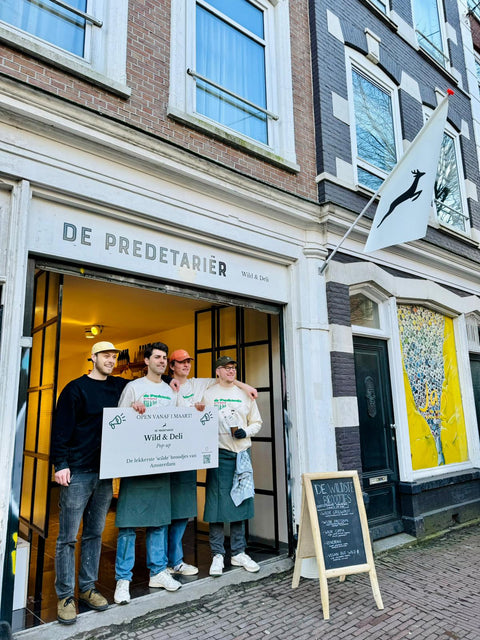The game season in the Netherlands is a special time when five game species may be legally hunted. These five game species in the Netherlands are: mallard, wood pigeon, pheasant, hare, and rabbit.
The culinary game season runs from October 15th to December 31st. This is the period when restaurants traditionally start using game again. But this is actually odd. The following hunting seasons apply to the five game species:
Mallard: August 15 - January 31
Rabbit: August 15 - January 31 (hunting will most likely be closed)
Wood Pigeon: October 15 - January 31
Pheasant: rooster - October 15 - January 31
Pheasant: hen - October 15 - December 31
Hare: October 15 - December 31 (hunting also closed in some provinces)
As you can see, hunting for many of the official game species is permitted even outside the culinary game season. Yet, they often don't appear on the menu. It's also common for not all the game to be eaten during the season itself. It's then frozen and left in the freezer until the game season is officially open again. This is a real shame!
You'll also find many animals in restaurants during game season that aren't on the list above. These include roe deer, wild boar, geese, pigeons, and deer. These animals aren't hunted for food, but for population management and pest control. This form of hunting is highly regulated and simultaneously a source of good, sustainable, and fair meat.
Prevent Waste
Unfortunately, a lot of game is thrown away unused or frozen unnecessarily. This is a shame, because game is readily available year-round, either from the field or from the freezer. It can also be prepared for any occasion. There are countless recipes perfect for every season. Think summer salads with smoked wild boar ham, venison stews for the winter, beautiful cuts of meat from the BBQ, or even venison rendang!
Freeze is the new fresh
Often, meat and fish found in supermarkets have been frozen. You can see this on the packaging, which will say "thawed." This is for a reason. Freezing meat preserves quality and freshness, extends shelf life, is convenient and easy, ensures off-season availability, and is sustainable.
1. Maintaining Quality and Freshness
Freezing is one of the most effective ways to preserve the quality and freshness of meat. Once meat is frozen, the natural decomposition process stops, allowing it to retain its texture, flavor, and nutritional value. This is especially important for high-value cuts of meat like game, where flavor and tenderness are essential.
2. Longer Shelf Life
Fresh meat has a limited shelf life, usually only a few days in the refrigerator. Frozen meat, on the other hand, can be stored for months to years without loss of quality. This not only extends shelf life but also offers more flexibility in meal planning and stock utilization.
3. Convenience and Ease
Freezing meat makes it easy to buy in bulk and use at a later date. This is especially convenient for busy households and those who like to plan ahead.
4. Seasonal Availability
Some meats are seasonal and difficult to obtain fresh during certain times of the year. Frozen meat ensures that consumers have access to a wide variety of meat products year-round, regardless of the season. This isn't yet the case with game. We often don't eat game when it's in season, so it ends up in the freezer.
5. Sustainability and Less Food Waste
Freezing meat helps reduce food waste by preserving surplus meat that would otherwise spoil. This is not only economically beneficial but also contributes to more sustainable food consumption and a smaller ecological footprint.
In conclusion, freezing is an excellent method for preserving the freshness, quality, and safety of meat, while offering practical advantages such as extended shelf life, cost savings, and reduced food waste. This is why freezing is increasingly seen as the new "fresh" for meat.
Availability of Wild
Game is available at different times of the year, depending on the species and the hunting schedule. At the beginning of this article, you'll find the hunting schedule for the five game species. Looking at a few edible species that are hunted for population management and pest control, it looks like this:
- Deer
- Goat: April 1st to November 30th
- Goat: October 1st to March 31st
- Wild Boars
- All year round, with the exception of the Veluwe, Meinweg area and Meerlebroek
- Red deer
- August 1st to February 15th
- In Germany, hunting opens again in May
- Sometimes all year round due to exemptions
- Fallow deer
- August 1st to February 15th
- In Germany, hunting opens again in May
- Sometimes all year round due to exemptions
- Geese
- Due to exemptions all year round
- Pigeons
- Due to exemptions all year round
Making the most of game throughout the year, rather than waiting until the holidays, not only offers many culinary possibilities but also contributes to sustainable and responsible consumption. By consciously choosing game dishes in every season, we can reduce food waste and enjoy the diverse flavors nature has to offer.
Why buy game from Predetarian?
When you buy game from Predetarian, you know it's real game from Europe, responsibly hunted, and 100% free from factory farming.
We deliver throughout the Netherlands with a minimum order value of €75. In Amsterdam, delivery is always free with a minimum order value of just €20. You can also visit us or pick up your order at our store at Gerard Doustraat 180H in Amsterdam.


